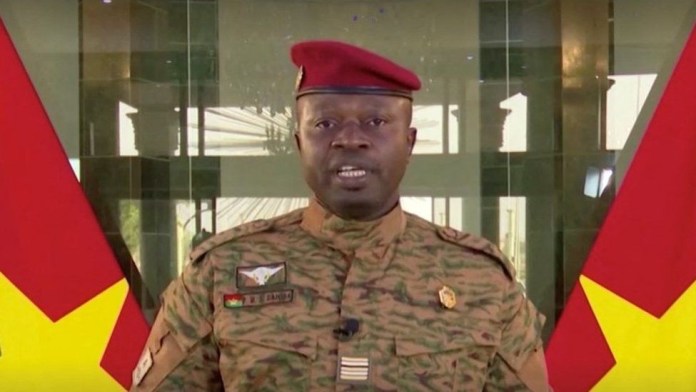Fresh tension is emanating in Burkina Faso over the intended transition to civil rule in the country as the leader of the military coup, Paul-Henri Sandaogo Damiba, was on Thursday declared president. The constitutional organ of the military regime on Thursday affirmed the declaration of Paul-Henri Sandaogo Damiba as president, setting the stage for self-transmutation to the throne.
The military junta indicated that the decision of the Constitutional Council on Wednesday was that “Paul-Henri Sandaogo Damiba, lieutenant-colonel in the national armed forces, president of the Patriotic Movement for Preservation and Restoration, is the president” of Burkina Faso. The leader of the military junta is also the head of state and supreme commander of the armed forces. The Council confirmed the announcement by the junta on January 31 that Damiba would be appointed to these roles for a transitional period and would be assisted by two vice presidents.
The Constitutional Council in a statement in the late hours of Thursday, indicated that the formal swearing-in of president Damiba would hold on February 16 in Ouagadougou.
Damiba led the military junta to overthrow President Roch Marc Christian Kabore on January 24. The ousted president had lost the confidence of the people in the country over his weakness or compromise in tackling the bloody jihadist terrorists in Burkina Faso.
Burkina Faso has since the coup faced international hostilities, including being suspended from the membership of the Economic Community of West African States (ECOWAS). The UN Security Council had also on Wednesday, expressed “serious concern” over Burkina Faso’s “unconstitutional change of government”. the African Union (AU) also did not accept the coup min Burkina Faso as desirable.
The U.S. had, however, attributed resurfacing of coups in Africa to bad governance, corruption and failure to deliver dividends of democracy to the people, among others.

 Business1 week ago
Business1 week ago
 Health7 days ago
Health7 days ago
 Latest1 week ago
Latest1 week ago
 Football1 week ago
Football1 week ago
 Latest1 week ago
Latest1 week ago
 Education5 days ago
Education5 days ago
 Crime1 week ago
Crime1 week ago
 Comments and Issues5 days ago
Comments and Issues5 days ago

